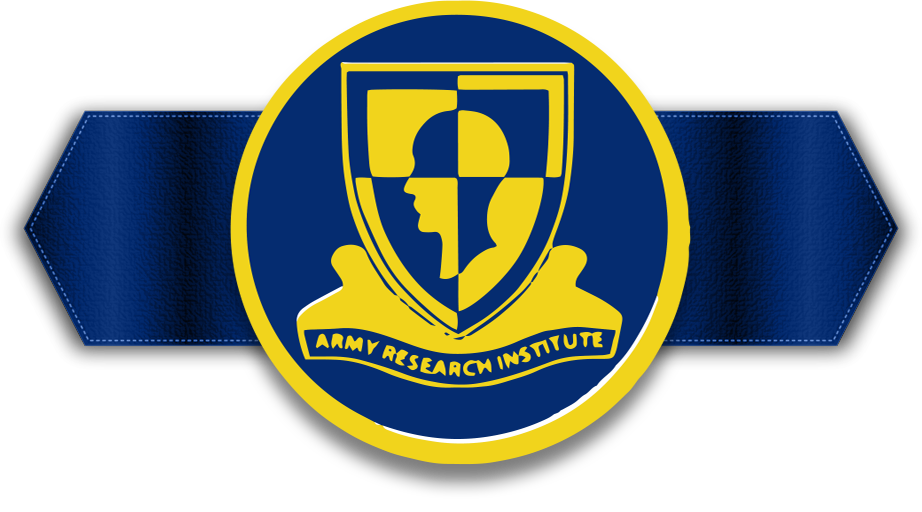SCIENTIFIC EVIDENCE
 The U.S. Army Research Institute (ARI) for the Behavioral and Social Sciences has carried out an extensive research program related to managing complex problems. Findings from ARI’s program of research are the basis for the material in this Resource.
The U.S. Army Research Institute (ARI) for the Behavioral and Social Sciences has carried out an extensive research program related to managing complex problems. Findings from ARI’s program of research are the basis for the material in this Resource. ARI has published findings from the research program in research reports and products. They are publically available, and can be obtained directly from ARI | email: angela.i.karrasch.civ@mail.mil
See individual reports and products below for more detail on the research behind the MCP Resource.
This report identifies and describes challenges and barriers that have impeded broad acceptance of Army Design Methodology (ADM) by the operational force. The report also provides recommendations and suggestions for addressing organizational barriers, including ways to foster greater engagement with design methodology across the Army.
Full Report
To become effective at implementing design, Army leaders and their staffs need opportunities to develop requisite knowledge, skills, and abilities (KSAs). This research provides a framework for understanding the KSAs and competencies that facilitate design thinking, along with recommendations for training and leader development.
Full Report
This report describes a research effort to identify metrics for evaluating the design processes and performance of Army planners, and the effectiveness of their efforts to implement Army Design Methodology (ADM). Incident reports of effective and ineffective design-related performance were used to develop self-reflective questions related to design performance. Questions and associated feedback provide the basis for an evaluation framework to support planning teams in assessing and improving their design efforts.
Contact ARI for full report | email: angela.i.karrasch.civ@mail.mil
This report provides a detailed look at the challenges that planning teams encounter in executing Army Design Methodology (ADM) along with strategies for managing those challenges. This report describes lessons learned and approaches that military leaders have used to optimize the performance of design teams in operational contexts.
Full Report
This product presents examples of best practices in the integration of conceptual and detailed planning. Current doctrine recognizes that successful planning requires both conceptual and detailed planning, but does not explain how to integrate them. Intended for use by commanders and their staffs, this handbook identifies and describes planning practices that will support execution and integration of Army Design Methodology (ADM), Military Decision Making Process (MDMP), and Troop Leading Procedures (TLP) within the operations process.
Full Product
This research report identifies visualization tools and capabilities that support systemic understanding of complex problems and decision making in operational environments. This report includes recommendations for education, leader development, and technology approaches to improve individual and collective visualization.
Contact ARI for full report | email: angela.i.karrasch.civ@mail.mil
The Strategic Thinking Compendium includes chapters authored by thirteen military and non-military experts in areas related to strategic and adaptive thinking. The Compendium addresses an overarching issue: how can the U.S. Army more effectively develop, assess, and retain strategic thinkers? The Compendium also includes an introductory chapter that provides an overview and a final synthesis and integration chapter that addresses major themes and recommendations the Army can take to enhance strategic thinking skills among its current and future leaders.
Full Product
This report describes a research effort to identify and understand strategic thinking requirements and development in the Army, including the knowledge, skills, and abilities necessary for effective strategic thinking. Major findings of this research include evidence that many Army leaders feel underprepared for assignments that require strategic thinking and the importance of creating an Army culture that values and promotes key aspects of strategic thinking.
Full Report
This report describes an effort designed to help Army leaders enhance their ability to manage complex operational problems through development of advanced thinking skills. It includes descriptions of the research foundations, development, and formative evaluation of four exercises that build and reinforce cognitive and behavioral skills that underpin the ability to think strategically. The exercises provide participants opportunities to practice and receive feedback on skills such as systems thinking, synthesis, questioning and information-gathering, reflective thinking, thinking in time, and strategic foresight.
Contact ARI for full report | email: angela.i.karrasch.civ@mail.mil

